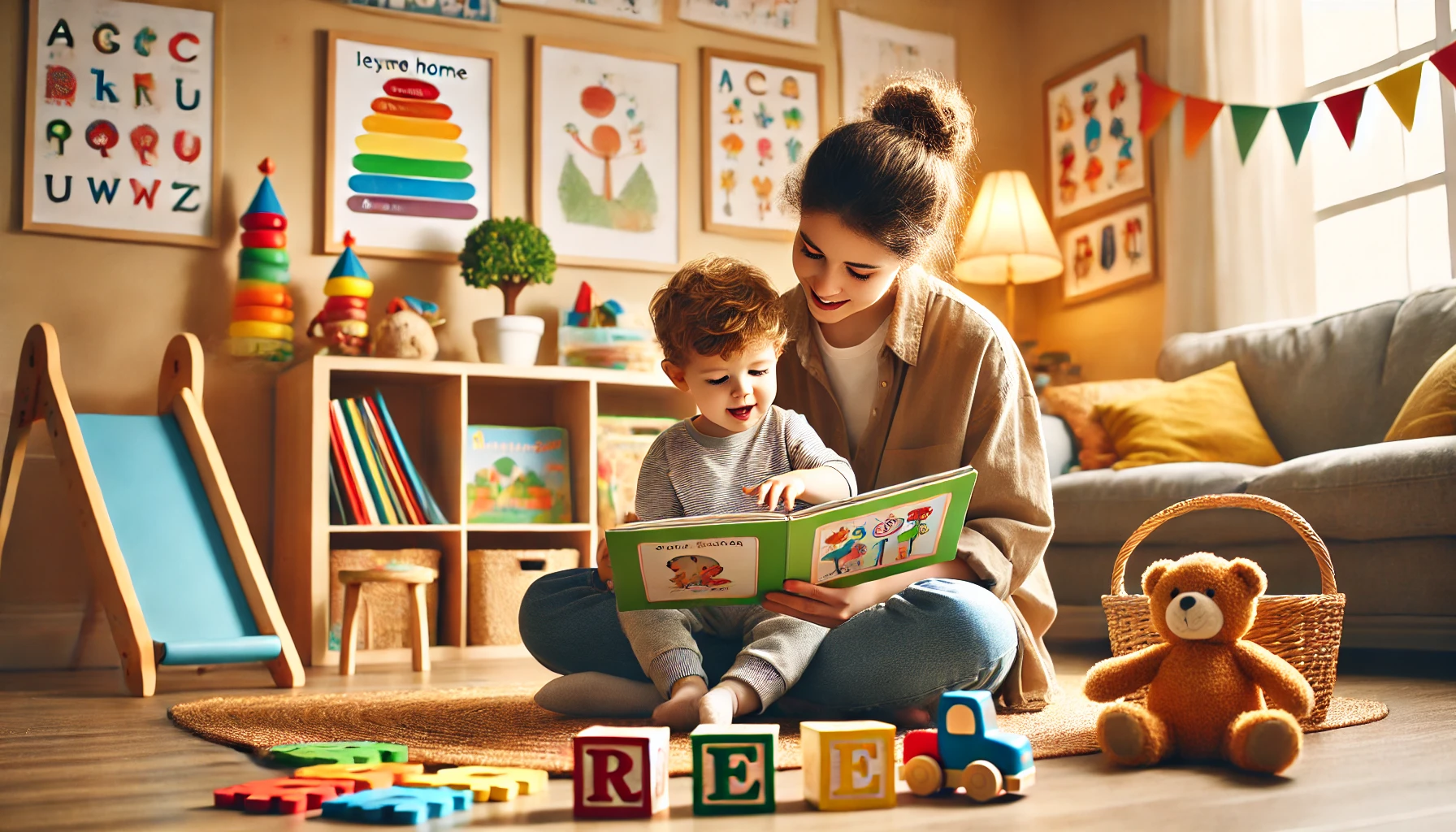How to Support Language Development in Young Children at Home
Language development is a crucial part of a child’s early learning. Strong language skills help children express their thoughts, build relationships, and succeed academically. Parents can support language growth at home through conversation, storytelling, reading, and interactive activities. In this article, we’ll explore practical ways to foster language development in young children.
Why Language Development is Important
- Improves communication skills – Helps children express their needs and emotions clearly.
- Enhances cognitive development – Strengthens memory, attention, and problem-solving abilities.
- Builds confidence – Encourages children to participate in conversations and social interactions.
- Prepares for reading and writing – A strong vocabulary supports literacy skills.
- Encourages emotional expression – Helps children describe and regulate their feelings.
1. Talk to Your Child Throughout the Day
Engaging in regular conversations helps children absorb new words and sentence structures.
Activity Idea:
- Narrate daily activities: “Now we’re putting on your shoes.”
- Describe what you see during a walk: “Look at the big blue sky and the green trees.”
- Ask open-ended questions: “What do you think will happen next in the story?”
What Kids Learn:
- New vocabulary
- Sentence structure
- Conversation skills
2. Read Books Together Daily
Reading is one of the most effective ways to build language skills and introduce children to new words.
Activity Idea:
- Choose books with colorful pictures and simple stories.
- Point to words and pictures while reading.
- Ask your child to predict what happens next in the story.
What Kids Learn:
- Word recognition
- Listening comprehension
- Storytelling skills
3. Sing Songs and Rhymes
Music and rhythm make it easier for children to remember words and phrases.
Activity Idea:
- Sing nursery rhymes like “Twinkle, Twinkle, Little Star” or “Itsy Bitsy Spider.”
- Create hand movements to go along with the songs.
- Encourage your child to make up their own simple songs.
What Kids Learn:
- Pronunciation and rhythm
- Memory and recall
- Listening skills
4. Play Word Games and Language Activities
Games make language learning interactive and fun.
Activity Idea:
- Play “I Spy” using descriptive words: “I spy something round and red.”
- Use flashcards with letters and simple words.
- Try rhyming games: “What rhymes with cat?”
What Kids Learn:
- Sound and word association
- Phonemic awareness
- Creativity in language
5. Encourage Storytelling and Imaginative Play
Letting children create their own stories helps them develop narrative skills and creativity.
Activity Idea:
- Ask your child to tell a story about their favorite toy.
- Use puppets or dolls to act out short stories.
- Start a story and let your child finish it.
What Kids Learn:
- Sequencing of events
- Expression of ideas
- Verbal confidence
6. Expand on What Your Child Says
Repeating and expanding a child’s words helps them learn how to form more complex sentences.
Activity Idea:
- If your child says, “Dog,” respond with, “Yes, that’s a big brown dog!”
- Encourage longer sentences by asking follow-up questions.
- Rephrase incorrect sentences with the correct structure.
What Kids Learn:
- Sentence building
- Proper grammar use
- Vocabulary expansion
7. Limit Screen Time and Encourage Face-to-Face Interaction
While some educational programs can be helpful, real-life conversations are the best way for children to develop language skills.
Activity Idea:
- Set specific screen-time limits.
- Encourage more playtime and storytelling instead of watching videos.
- Have family conversations during meals.
What Kids Learn:
- Active listening
- Real-world conversation skills
- Social interaction
8. Introduce Multiple Languages (if applicable)
If your family speaks more than one language, early exposure can help children become bilingual.
Activity Idea:
- Use simple words in both languages during daily routines.
- Read bilingual books together.
- Play songs in different languages.
What Kids Learn:
- Language flexibility
- Cultural awareness
- Stronger cognitive abilities
Final Thoughts
Supporting language development at home helps children build communication skills, confidence, and a love for learning. By incorporating conversation, books, music, and interactive play into daily routines, parents can create a rich language-learning environment.
